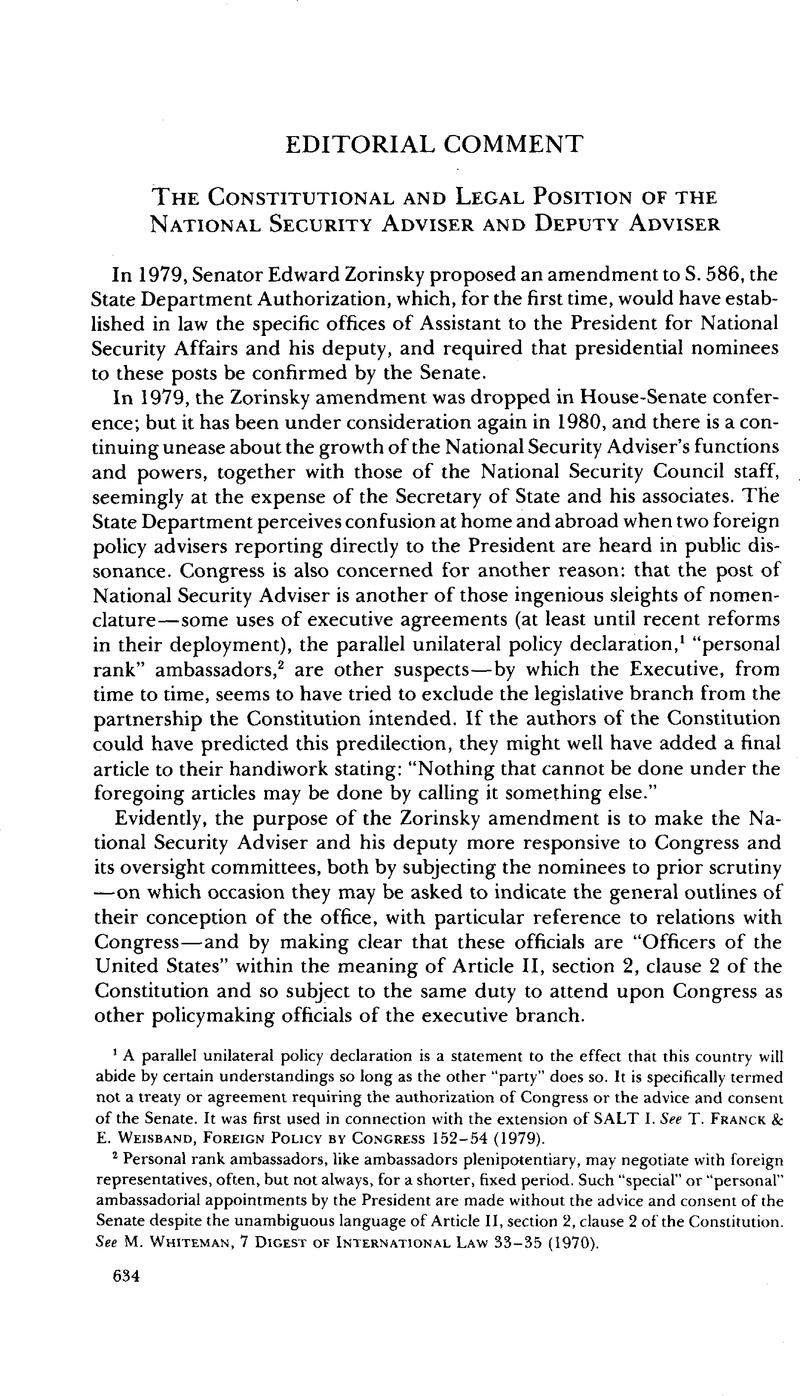No CrossRef data available.
Published online by Cambridge University Press: 27 February 2017

1 A parallel unilateral policy declaration is a statement to the effect that this country will abide by certain understandings so long as the other “party” does so. It is specifically termed not a treaty or agreement requiring the authorization of Congress or the advice and consent of the Senate. It was first used in connection with the extension of Salt I. See T. Franck & E. Weisband, Foreign Policy by Congress 152-54 (1979).
2 Personal rank ambassadors, like ambassadors plenipotentiary, may negotiate with foreign representatives, often, but not always, for a shorter, fixed period. Such “special” or “personal“ ambassadorial appointments by the President are made without the advice and consent of the Senate despite the unambiguous language of Article II, section 2, clause 2 of the Constitution. See M. Whiteman, 7 Digest of International Law 33-35 (1970).
3 99 U.S. 508,509-10(1879).
4 J Auffmordt v. Hedden, 137 U.S. 310, 327 (1890).
5 424 U.S. 1, 126 (1976).
6 id. at 269-70.
7 50 U.S.C. §402(a) and (c).
8 Id., §402(c).
9 “The Assistant to the President shall be assisted by a National Security Council staff, as provided by law.” Presidential Directive/NSC-2, January 20, 1977 (unclassified).
10 3 U.S.C. § 105(a) (1) and (2). There is also provision for temporary appointment of experts or consultants in 5 U.S.C. §3109 (b).
11 Congressional Research Service, Library of Congress, Executive Privilege: Issue Brief No. IB 75065, at 3 (1977).
12 272 U.S. 52 (1926).
13 31 U.S.C. §16.
14 42 U.S.C. §6612.
15 Letter of President Jimmy Carter to Senator Frank Church, June 4,1979 (in the possession of the author).
16 498 F.2d 725 (1974). See also U.S. v. Nixon, 418 U.S. 683 (1974).
17 498 F.2d at 730.
18 id. at 731.
19 2 U.S.C. §192 (1977).
20 U.S. v. Nixon, 418 U.S. 683 (1974).